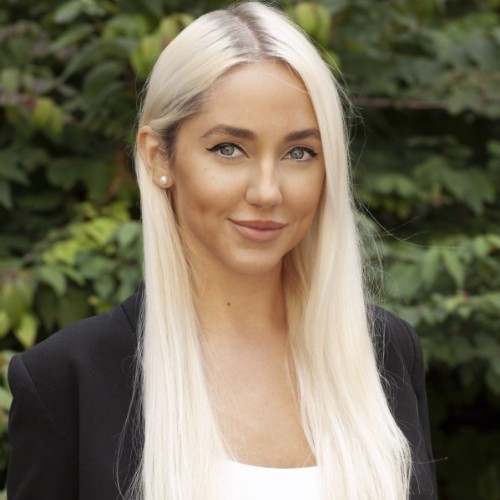Mark your calendars
Source: Stop the Money Pipeline
Today, a coalition of over 130 different organizations across North America, known as Stop the Money Pipeline, are going to come together to protest various financial institutions backing the Trans Mountain, Line 3, and Keystone Pipelines.
For years, financial institutions like JP Morgan Chase, Liberty Mutual and Blackrock have been financially supporting the development of oil sands pipelines which have proven time and time again to be disastrous for the environment and safety of the indigenous communities in which they pas through. The people have had enough.
“Financial institutions are beginning to acknowledge their role in driving the climate crisis, but have so far failed to take the necessary steps to address the problem, namely stopping the finance of fossil fuels and deforestation and starting to respect human rights and Indigenous sovereignty,” Stop the Money Pipeline reps said. JP Morgan Chase for example, has financed $17.5 billion dollars towards TC Energy, the company behind the Keystone XL pipeline (making TC Energy their largest fossil fuel client).
Individuals who want to join the protests can join digitally through this link.
New eco-jobs on the way
Source: ECO Canada
Good news for environmental grads! ECO Canada just rolled out their latest wage funding program, which targets digitally skilled professionals coming out of post secondary education and are just starting out their careers in the environmental sector.
ECO Canada has been a long-time support for Canada’s environmental workforce. Since they started, they have been able to fund over 8,500 jobs to support the environmental workforce.
The program, called the Digital Skills for Youth (DS4Y) program, will allow for the creation of 280 job placements with environmental employers across Canada.
“Organizations in all sectors need new workers with digital skills, especially environmental employers. Cleantech, in particular, is a promising sector that will benefit tremendously from the Digital Skills for Youth program,” said Kevin Nilsen, President and CEO of ECO Canada. “For Canada to have a thriving, competitive, and innovative cleantech industry, we need digitally skilled workers to be part of the movement.”
Small to medium sized environmentally based businesses can apply for the funding, for the purpose of recruiting grads in digital marketing, data management and IT services.
Half a million sharks on the line for the COVID-19 vaccine
Source: Pixabay
Sharks are hitting the headlines in the latest news – for the possible death of approximately 500,000 sharks worldwide for the COVID-19 vaccine. This is predominantly due to the substance called Squalene oil needed for the vaccine found in the marine species.
Squalene oil, a natural substance found predominantly in the liver of the sharks – would be an adjuvant for the vaccine due to its effects on boosting the immune response and it can also lower the amount of vaccine needed for each person – making it a sought after commodity worldwide during the pandemic.
This puts the these marine creatures in danger for a mass population decline due to the high demand for the vaccine, a sudden mass death toll could cripple the entire existence of the species and disrupt the food chain in oceans. It is estimated that already 2.7-3 million sharks are killed annually for the squalene oil. An estimated 21,164 sharks would be killed to fulfill the vaccine demand for The United States alone.
Petitions have been launched targeting vaccine manufacturers to look at other options for adjuvants for the COVID-19 vaccine – already acquiring over 40,000 signatures in the past two weeks.
Ikea Canada embarks on a radical transformation to be a planet positive business
Source: Ikea
Ikea Canada is on route to support the circular economy by embarking on their own journey to circular operations stated by Michael Ward – the CEO and CSO of IKEA Canada “The next decade is crucial, and the urgency of tackling climate change has inspired us to accelerate efforts and meet the ambitious goals of becoming fully circular and climate positive in total operations by 2030.”
For the circular economy goals to be met, it includes using renewable, recycled, or recyclable materials, eliminating waste and introducing services that help extend the life of the products, states Melissa Barbosa – the sustainability manager at IKEA Canada.
Single use is now phased out from IKEA Canadas home furnishing range, with its last plastic straw sold in 2019. Making its way on to being the leader of furniture for the people and the planet. With Ikea Canada already supporting EV charging stations, and now it is finding ways to fill the gaps within the supply chain and operations.
World Leaders say the time to act is now: wildlife extinction
Source: BBC News
The UN biodiversity summit held virtually on Wednesday September 30th addressed the crisis facing humanity from the degradation of biodiversity. The UN has identified that 75% of the Earth’s land surface has been significantly altered by humans. The summit highlighted the urgency needed to accelerate action on biodiversity for sustainable development. Looking forward, the biodiversity conference in 2021 (postponed because of the pandemic) is where all member countries will be expected to adopt a ‘biodiversity framework’ – basically a global contract to put nature on a path to recovery by 2030. Will a decade of ‘take action now’ recovery be enough?
Two weeks prior to the summit, the UN published a report revealing that none of the 20 biodiversity targets that countries signed back in 2011 would be fully met. Those targets ranged from reducing loss of natural habitats to economic shifts like eliminating subsidies for activities like polluting farming and fishing practices. The new framework will aim to build on those ‘failures’ and address implementation. Basically, we’ll be focusing on creating national strategies to act on the targets set back in 2010. It’s not about reinventing the wheel, but instead about making sure that implementation beings immediately. Additionally, the new framework will include resources such as technology transfer and capacity building. If worldwide implementation does indeed start now, there’s still hope for our planet. To read more about the summit click here.
Another step for humankind – NASA’s Artemis program to return to the moon by 2024
Source: NASA
NASA has formally outlined its $28 billion plan to return to the moon. The Artemis program will send a man and women to the lunar surface in the first landing with humans since 1972. The cost represents funding for what Artemis needs to function for the next four years. The ambitious 2024 timeline is contingent on Congress releasing $3.2 billion for building a human landing system. Jim Bridenstine, NASA Administrator, explained that it is critical important to secure this funding so they can start building. Phase 1 of the U.S. plan includes an uncrewed test slight around the Moon – Artemis 1 – in autumn of 2021. Artemis 2 would repeat the trip around the Moon with astronauts. The spacecraft as been termed Orion – the exploration vehicle that will carry the crew to and from space.
By sending astronauts back to the moon, the U.S. hopes to renew American leadership in space. There are plans to extract valuable deposits of water-ice from the lunar South Pole which could be used to make rocket fuel on the moon. How cool is that? This method would be at a lower cost than carrying fuel from Earth and would serve as the foundation for a lunar economy. To read a brief on NASA’s plans moving forward click here

Greta Vaivadaite is a Journalist, Online Editorial and Social Media Coordinator at Alternatives Media. Greta has completed her undergraduate studies at York University in Environmental Management, and completed her Masters of Environment and Sustainability at Western University in 2020. Her professional interests lay in advocating for environmental education, sustainable fashion, and a greener travel industry.

Alexandra completed her Masters degree in Environment and Sustainability at Western University. She also holds a Bachelor’s of Science from the University of Windsor with Honours in Environmental Studies, where she concentrated in Resource Management and was actively involved in undergraduate research. Outside of academia, she enjoys hiking, camping, and spending her summers on the beach in Prince Edward Island.













